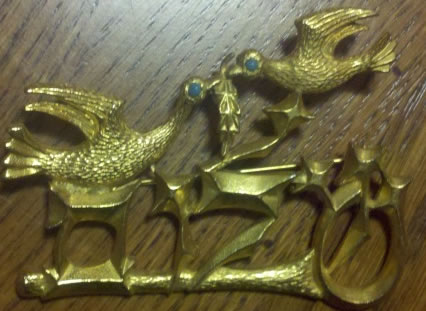According to Bill Bryson in At Home, A Short History of Private Life, Gloomth describes the ambience of neo-Gothic or Gothick architecture.
It was coined by Horace Walpole (1717-1797), an art historian, playwright, antiquarian and politician who revived the Gothic style and applied it to his house, Strawberry Hill, which he built in south-west London. He also wrote a Gothic novel, The Castle of Otranto, and is credited with coining or introducing over 233 words into English, including airsickness, fairy tale, falsetto, frisson, impressario, malaria, mudbath, serendipity and souvenir.
Here are some examples of how Walpole used gloomth (from the OED):
– One has a satisfaction in imprinting the gloomth of abbeys and cathedrals on one’s house.
– [Strawberry] is now in the height of its greenth, blueth, gloomth, honeysuckle, and seringahood*.
– Strawberry, with all its painted glass and gloomth.
*seringahood = the condition of abounding in seringa bloom. Seringa is any of the shrubs of the genus Philadelphus common in gardens; the mock-orange and the word comes via French from the Latin syringa, from the Greek συριγγ- from σῦριγξ (syrinx – pipe, tube, channel, fistula)
Gloom comes from the Middle English gloum(b)e, from the Old English *glúmian.
Gothic comes from the Goth, from the Old English Gota, from the late Latin Gothī/Gotthī, from the Greek Γόθοι, from the Gothic *Gutôs/*Gutans. The Gothic people, a Germanic tribe that invaded parts in of Eastern and Western Europe between the 3rd and 5th centuries AD, called themselves Gutþiuda (Gothic people).

